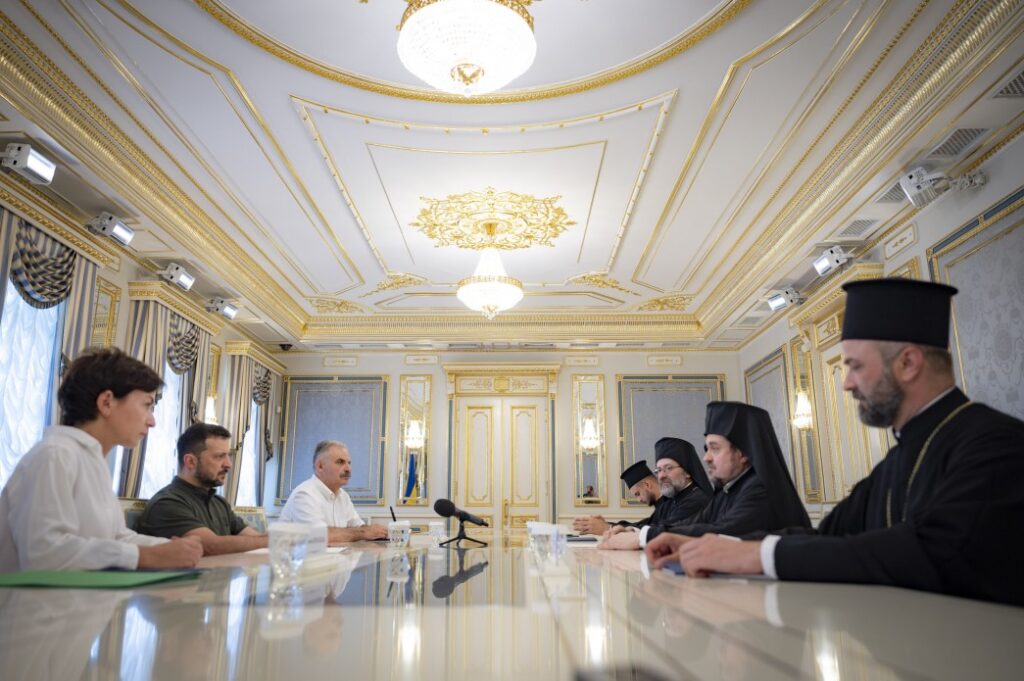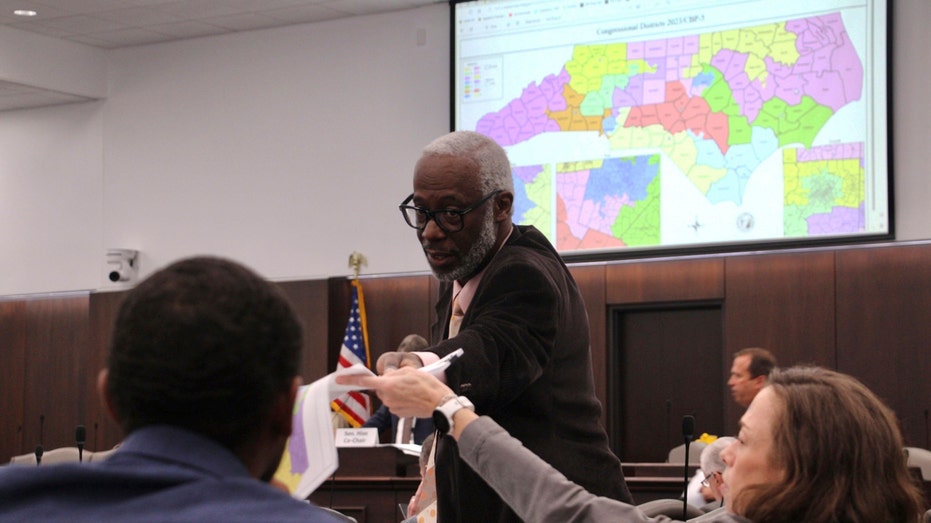Zelenskyy seeks promotion of national Orthodox Church from metropolitanate to patriarchate
President Zelenskyy says he advocated for elevating the Orthodox Church of Ukraine to patriarchate status during a recent meeting with Constantinople exarchs, while stressing state non-interference in church affairs.


Commenting on his meeting with Constantinople exarchs a month ago, Ukrainian President Volodymyr Zelenskyy said on 20 September that he expressed support for elevating the status of the Ukrainian Orthodox Church to a patriarchate.
According to a report by Ukrainian news outlet LB, Zelenskyy stated,
“I said that our people, Ukrainians, would understand (meaning appreciate, – Ed.) if our status was elevated to a patriarchate. The exarchs accepted the information and will convey it to Ecumenical Patriarch Bartholomew for consultation.”
The president further elaborated that the exarchs have a potential vision for an action plan regarding the elevation of the Ukrainian metropolitanate to a patriarchate, but it requires further discussion, primarily in Constantinople.
“They are in contact with Viktor Yelenskyi on this issue. They should return with specific proposals,” Zelenskyy added.
Yelenskyi is the head of Ukraine’s State Service for Ethnopolitics and Freedom of Conscience.
Emphasizing the state’s position on the matter, the president stressed, “We, as a state, will not influence or pressure in any way,” when commenting on the possible participation in the dialogue between churches.
Meeting with exarchs
The meeting in question, which took place on 28 August, was initially reported by the President’s Office without mentioning the discussion on the patriarchate status.
The Office’s report said that Zelenskyy met with a delegation of the Ecumenical Patriarchate, including Metropolitan Ilarion of Winnipeg, Metropolitan Job of Pisidia, Patriarchal Deacon Epiphanius, and Bishop Michael, the Exarch of the Ecumenical Patriarch in Ukraine.
Ukraine’s church independence
Ukraine received the Tomos of Autocephaly, or decree of church self-governance, in 2019, following the Local Unification Council held in December 2018. The council merged two of three major Orthodox churches – the Ukrainian Orthodox Church of the Kyiv Patriarchate (UOC-KP) and the Ukrainian Autocephalous Orthodox Church – into the Orthodox Church of Ukraine (OCU). Two bishops from the third major church – the Moscow Patriarchate’s “Ukrainian Orthodox Church” (UOC-MP) also joined. Autocephaly was granted to the Kyiv Metropolia of Constantinople, and Moscow’s anathemas against Metropolitans Macarius and Filaret were annulled. Ecumenical Patriarch Bartholomew I signed the tomos on 5 January 2019.
The OCU currently holds the status of a metropolitanate. LB notes that according to canons, elevation to patriarchate status is only possible within the framework of the existing Tomos. It is also envisaged that patriarchate status can only be granted to “the entire fullness of Ukrainian Orthodoxy,” meaning all Orthodox denominations must unite for this to occur.
While formal dialogue between the OCU and the UOC-MP is ongoing, unification, even partial, seems unlikely at present. The situation is further complicated by the Russian Orthodox Church’s severance of canonical communion with the Constantinople Patriarchate in 2018, a decision supported by the Ukrainian Orthodox Church of the Moscow Patriarchate.
In August, the Ukrainian parliament adopted a law, prohibiting the operation of religious organizations affiliated with Russia amid the ongoing Russo-Ukrainian war. Since the outset of Russia’s full-scale invasion of Ukraine, multiple UOC MP priests were arrested for links with Russian security services. In Russian-occupied territories, most Moscow Patriarchate priests collaborate with Russian forces, while other denominations face persecution. However, the law would be barely enforceable, because the Moscow Patriarchate formally claimed its severance of its affiliation to Russia.
Related:
- Zelenskyy signs law banning religious institutions linked to Russia
- Bulgarian Orthodox Church elects pro-Kremlin Metropolitan Daniil as new Patriarch
- Ecumenical Patriarch Bartholomew to Zelenskyy: “Patriarchate, as the mother church of all Orthodox in Ukraine, is always on their side”
- Parliament bans Moscow-affiliated churches in Ukraine
- Moscow-backed church’s priest accused of spying for Russian military intel in Kharkiv Oblast
You could close this page. Or you could join our community and help us produce more materials like this.
We keep our reporting open and accessible to everyone because we believe in the power of free information. This is why our small, cost-effective team depends on the support of readers like you to bring deliver timely news, quality analysis, and on-the-ground reports about Russia's war against Ukraine and Ukraine's struggle to build a democratic society.
A little bit goes a long way: for as little as the cost of one cup of coffee a month, you can help build bridges between Ukraine and the rest of the world, plus become a co-creator and vote for topics we should cover next. Become a patron or see other ways to support.

